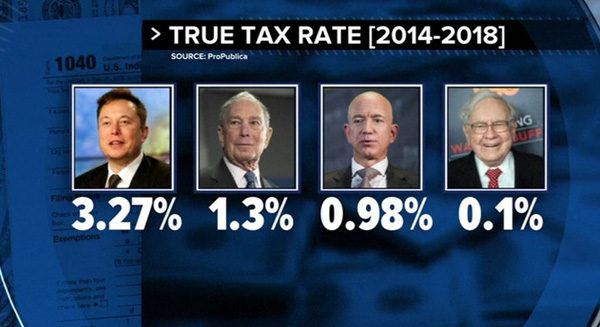Unveiling the tax evasion hole of the rich in the US: Peter Thiel used his retirement account to invest back in the company to help “dodge taxes” with $ 5 billion, Jeff Bezos and Elon Musk hardly paid taxes.
- Tram Ho
The definition of “rich” is controversial
This bill, if passed, could reverse the tax cuts under the Trump administration in 2017. However, the biggest benefits are unlikely to belong to the lowest income earners.
Michael Kosnitzky, law firm Pillsbury Winthrop Shaw Pittman, thinks the corporate tax increase will not affect the rich. As this tax is paid by the shareholders. That means they will receive fewer dividends, employees will have their pay cut, and consumers will have to pay more.

The New York Times quoted Brad Klontz – a financial psychologist in Boulder, Colorado, “this definition is completely subjective and adds an arbitrary income figure”. That is, you can be “rich” in one area but “poor” in another.
This means that setting income levels to determine the rich regardless of living situation is “arbitrary” and will lead to many bad consequences for taxpayers.
A series of proposals in this draft have been criticized for creating a “loophole” that provides huge opportunities for the super-rich to transfer wealth. A common method is for the rich to put assets, such as shares in a private company, into a short-term trust and transfer all assets to tax-free heirs.
Now, taxing this wealth is a key part of Mr Biden’s original tax plan, which, if successful, could bring in an additional $11 billion in taxes. But after much lobbying, the current proposals are unchanged.

Too many loopholes
In fact, many tax “loopholes” in the US need to be addressed. For example, cut back on stock incentives received by startup founders and early employees. As it stands, the first $10 million of those shares at the IPO can be tax-deductible.
It’s a common practice, with founders using the provision to contribute shares to the trust and then stacking $10 million exclusions. They can fund multiple trusts, almost an unlimited number of which can be excluded.
The proposal would cut the $10 million limit to $5 million, which would help reduce the impact of people looking to take advantage of making multiple deductions.
A well-known “hole” is tax-free retirement accounts. Withdrawals in retirement are not taxable. With this advantage, billionaire Peter Thiel used it to buy shares of companies he owns such as Paypal and Palantir with extremely low value. All capital gains since then have been tax-free.
Given the development of the companies that Thiel invests in through retirement accounts, the amount of tax-free assets that this billionaire “sneaks” is estimated at $ 5 billion.
Similarly, the ProPublica Report, a nonprofit investigative news organization, shows that tycoons like Jeff Bezos – the founder of Amazon and Elon Musk – the boss of Tesla, always pay little or no taxes. .
Source : Genk
